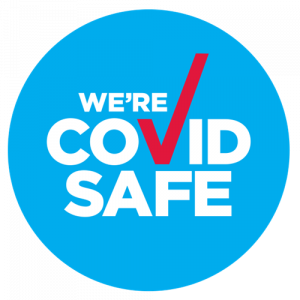Why are our recall abilities so important?
Your memory recall ability is a very important skill to have. If you cannot recall important pieces of information, then what is the point of learning this information in the first place?
Memory recall is where you recall information that you have previously learnt. Training this skill ensures that we can use information we have previously learnt, in the future. There are numerous activities and games included below, that can improve and assist your memory recall skills. These activities can be as short and simple, or challenging as you wish them to be.
Brain yoga
- Make a fist with your left hand and extend your thumb, then make a fist with your right hand, extending your pinkie. Swap, so your left pinkie is extended and your right thumb. You can do the same activity with tapping your head and rubbing your stomach. Make sure to keep swapping hands!
- Another option is to do basic everyday activities, such as brushing your teeth, with your other hand.
- These activities are meant to aid in coordination, which strengthens neural connections, improving memory functions.
Card games
Memory card games test a person’s short-term memory and their ability to remember patterns. This is meant to be a simple and fun way for you brain to engage and activate areas related to pattern recognition and recall.
Chess
Playing chess uses short and long-term memory, executive functioning, and information processing speed. You must monitor and adapt your plans and behaviour to achieve your goals. You also need to analyse the chess board and remember possible strategies to implement while remembering your opponent’s previous moves and guessing what they might do next.
Creative skills
Learning new skills engages your brain in different ways than it might have previously. New and cognitively demanding skills, such as quilting, photography and other creative occupations enhance memory function.
Crosswords
There is a strong correlation between crosswords and delayed onset of dementia. Crosswords stimulate and challenge the brain, especially if you are new to them. If they’re too easy, you may need to find another activity to engage your brain.
Learning a new language
Learning a new language stimulates parts of the brain that most other activities do not and can also play a role in delaying the onset of dementia. Bilingualism increases and strengthens connectivity between different areas of the brain.
Learning how to play a new musical instrument
This activity exercises the parts of the brain that are responsible for coordination. This skill may also benefit cognitive development in a young brain and help protect against cognitive impairment in an ageing brain.
Puzzles
Puzzles activate cognitive functions of perception, mental rotation, working memory and reasoning, as your brain must sort through colours and shapes to assemble a visual picture. The more pieces a puzzle has, and the less range of colours on the picture, the more difficult the puzzle. Putting the correct piece in place also releases dopamine, which helps concentration levels. If your puzzles are getting too easy and you’re getting too bored, you can choose a smaller puzzle, flip it over and then only use the back of it.
Rebus puzzles
Rebus puzzles combine the use of illustrated pictures with individual letters to depict words or phrases. E.g., the word, “been”, would be depicted as a picture of a bee next to the letter “n”. The phrase, “too bad”, would be depicted as “BAD BAD”.
Regular exercise
- Regular exercise can improve memory, cognition, and motor coordination, not to mention, lower stress levels.
- Dancing engages areas in the brain related to rhythm and balance. Dance has also demonstrated positive effects on memory, planning and organisation.
- Elite athletes for high demand sports have demonstrated improved attention and faster information processing speeds. Sports can be physically demanding, which is good for the body, and some require cognitive skills, such as:
- Sustained attention
- Planning
- Multitasking
- Ability to adapt to rapidly changing situations.
Sleeping
Getting enough sleep is crucial as this is when your brain converts short-term memories to long-term. The recommended amount of sleep is between 7 and 9 hours each night. Sleeping for this amount of time boosts memory recall, reduces mental fatigue and helps regulate metabolism.
Sudoku
Completing a sudoku uses your working memory, as you must come up with numbers to fit the space and remember them. Studies have discovered that people who practice sudoku frequently, have better cognitive function.
Take care of yourself
- Eat well – make sure key vitamins are in your diet and take supplements if necessary.
- Drink lots of water – if you don’t, the body and the mind can become weak and tired.
- Get enough sleep – the brain needs sleep to change new memories into long term memories.
- Manage stress effectively – limit stress in your life, using physical relaxation techniques, thought awareness and rational positive thinking and imagery.
- Cut out bad habits – limit caffeine and alcohol, sit down less and do more of the physical activities you enjoy.
The suitcase or tray game
- In a group, take turns. The first person says something they will pack in a suitcase, then next has to say the first, and come up with a second, the third has to say the first and second before coming up with a third, and so on. The first to miss an item loses.
- Ask someone to put a bunch of items on a tray. Look at it for 3-5 seconds. Put a cloth over it to cover it. Write down a list of everything on the tray.
- These games test your short-term memory recall abilities and will improve these skills if you keep practicing and testing yourself daily.
Video games
Video games that include action, puzzles and strategy components may lead to improvements in attention, problem solving and cognitive flexibility. Some games also force you to multitask and react to new stimulus while trying to achieve an objective. This can improve working memory and ability to recall information while solving a problem.
Once you have incorporated some of these activities into your daily life, you should begin noticing an improvement in your memory recall abilities, and, possibly, in some other areas as well.





